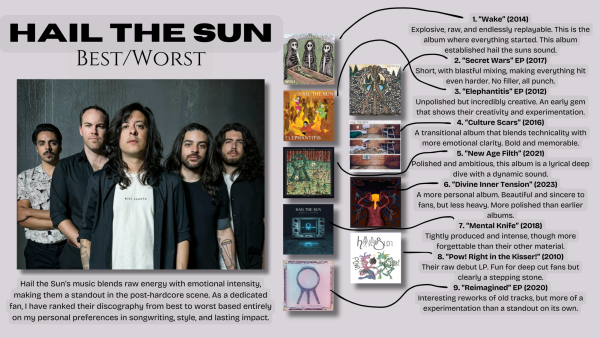Review: The Martian
Book: The Martian
Author: Andy Weir
Genre: Easily a hard sci-fi, but the hardest hard sci-fi I’ve read. Reads like realistic adventure fiction from the near future.
General Notes: Ok, so this is one of the most realistic sci-fi books I’ve ever read. Seriously, I very frequently forgot that I live in a world where we haven’t actually sent anyone to Mars yet. And for a former programmer, Weir has a great handle of plot and story structure, and an amazing sense of humor. For such a dark premise, the book keeps it light-hearted and makes sure you’re fascinated with the science at all times.
But for all that I enjoyed how light-hearted the book was, I wish it had pushed its dark premise a little more and played up its contrast. And the style came off a little mechanical at times.
Characterization: Starting with Watney, who is the most important character by far, he’s a good character. He fits the story and its tone well. He’s funny, cheerful, deals with stress well, intelligent and good at relaying things into layman-speak. He’s easily the best main character for the story, and Weir defined him in broad, thick strokes from the beginning, defining his character with little hesitation. And yet, he has his problems. I would like to preface this by saying that I forgive Weir for most of his characterization struggles; after all, the story was clearly written for a dual purpose that I’ll discuss later, and characterization didn’t happen to fit very well into that purpose.
But back to Watney’s issues. Firstly, he’s not got a lot. Happy backstory, clever, two parents who love him, not much of a life back on Earth, at least not one that he ever talks about. His only concern is the battle for survival- and while exploring human instinct for survival is certainly a noble cause, Weir was not exploring this instinct, just utilizing the fact that the readers would not question it. Wantey doesn’t have any reason to survive other than the fact that he doesn’t want to die. He doesn’t have anything to go back to- and not giving him that seems like a big misstep to me.
And another thing- Weir missed huge potential for looking at Watney’s psychological damage from spending so much time alone and fighting for his life. The NASA officials guess, at one point, that Watney may be on a suicide mission, looking for someone to talk to before he dies- but they’re wrong and he’s not. But surely he has some damage of some sort? Surely Watney must be feeling some sort of effect from spending so long without talking to anyone, and even longer without seeing hide nor hair of any other life form, but the only effect from this we ever see is at the very end, when he is rescued and (if I remember correctly) is shocked enough at the sight of one of the other astronauts to have to stop moving and just stand there for a moment. That’s it. So much potential, but the opportunity was missed.
As for the minor characters- for in comparison to the titular Watney, they are all minor- they’re done quite well. The fact is, Weir was writing a story about the sort of people who work at NASA or become astronauts, and that’s about three personality types to work with, to be honest, so he did quite well in differentiating characters! They have their quirks, their skills (though like Watney most are mysteriously devoid of any sort of interesting history) and their different personality traits. Like Watney, the are drawn out in large, broad strokes that keep them animated and alive as they move through the background of the story.
And a quick note on diversity: Hooray for both the captain and programmer of an important mission being on an important Mars mission! Hooray for tons of different ethnicities, religions and races being represented at NASA! Andy Weir, for a white dude, is good at this diversity thing.
Plot: Let’s say it straight out- this is Weir’s strong point, and the hardcore, high-stakes plot is what grabs your attention, and made the book such a success.
The book opens in a hopeless situation. Watney is on Mars, left for dead, has few supplies and no way to communicate with Earth. Survival stories are popular for a reason, and although this isn’t a conventional plane-crashes-in-the-woods-tale, Weir knows exactly why that genre is such a success.
The math is done; the work is shown. A large part of the beginning of the book is spent with Weir showing off his knowledge and Watney assuring us that he will survive, if not verbally than with his tenacity and humor. Then Weir introduces a tool he will use over and over again for the rest of the book: Murphy’s Law. Anything that can go wrong, will go wrong.
And on Mars, the worst-case-scenarios can lead to death very quickly. To solve these problems, Watney has to think fast and think smart. The stakes are high, and other than that reassuring lull at the beginning to make sure we’re engaged, they stay high. Watney faces starvation, asphyxiation, overheating, dehydration, and exhaustion on the daily, but solves these problems. And as the solutions only create more problems, and the Martian planet itself introduces even more problems to the equation, a very real sense of impending doom bears down on the reader.
The ending is perfect. Understated, and places the utmost importance in a few very simple actions. It fits the rest of the book perfectly. You leave the book knowing that Watney is safe, and that the world he lives in will not be unchanged for his struggle.
Setting: I was a little disappointed that there weren’t a lot of beautiful descriptions of the Martian landscape. Of course, I don’t think Weir is a poet.
The setting was strong, but in a different way than Little Brother. In that book, the setting was beautiful and grounded the story. In The Martian, Mars does not help to ground the story, nor does it provide any sort of beauty to the words that are used to spin the tale, but instead, it provides the plot. Watney’s struggle is to fight Mars; to defeat it temporarily, until he can escape it.
And there’s a terrifying sense of how random nature is- the dust storm and the collapse of the ramp both make sure we are aware of how dangerous the landscape that Watney navigates is.
TL;DR: The plot really couldn’t have been better, with realistic twists and terrifying use of Murphy’s Law. It goes hand in hand with the setting, which, while not well imparted on the reader, throws everything it has at the characters. Speaking of the characters, they are well-defined, but not very three-dimensional, and I feel Weir missed opportunities in characterization. It’s a fascinating read that will keep you interested no matter what the whole way through, and Weir clearly knows his stuff.
All in all: 4 out of 5 stars.
Characterization: 2 out of 5 stars.
Plot: 5 out of 5 stars.
Setting: 3 out of 5 stars.

I’m Mina Buchholz, a sophomore at Oak Park. This is my first year on the Log, but second in journalism, and I also play golf, participate in Art Club,...










